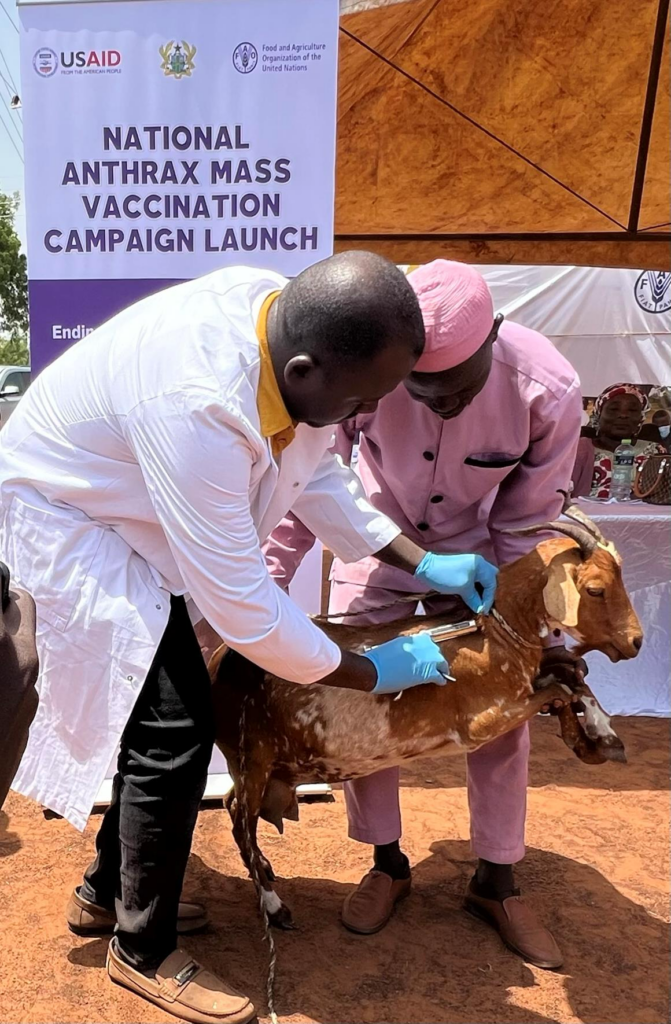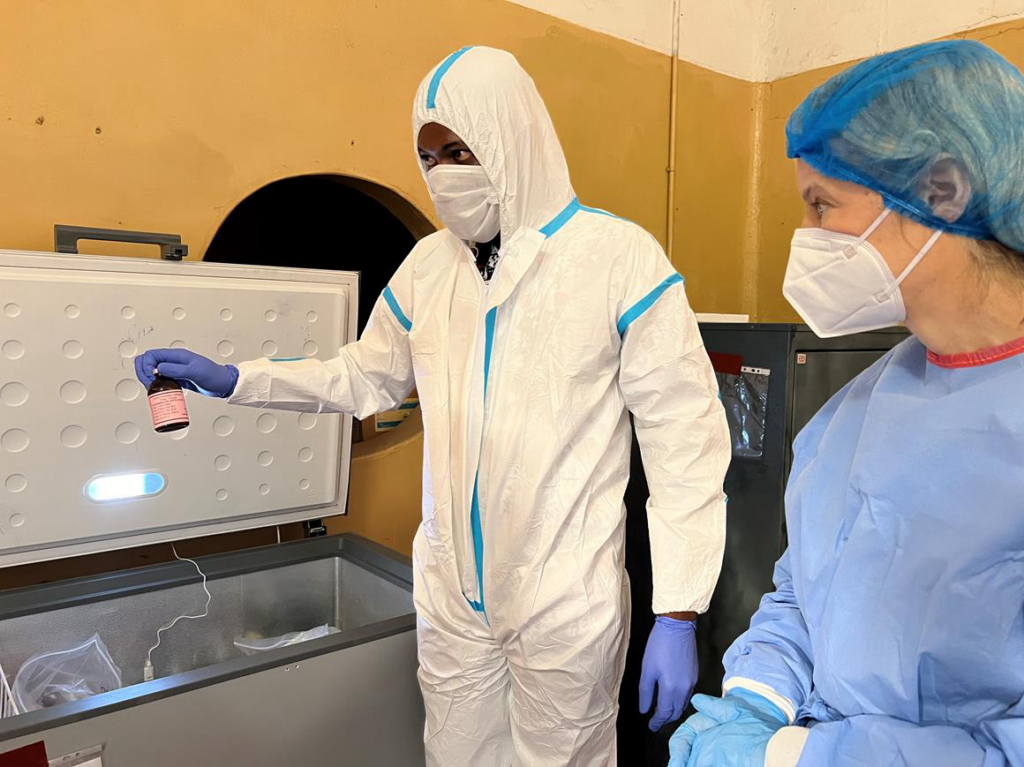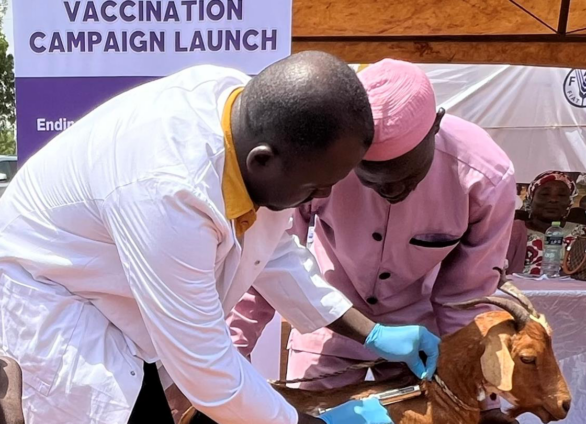The United States Government, through the United States Agency for International Development (USAID), is donating 100,000 doses of the anthrax vaccine in support of the Ghana Government and the U.N. Food and Agriculture Organisation’s (FAO) anthrax vaccination campaign.
The campaign is expected to cover about one million animals across the five regions of the north.
“Anthrax not only threatens human life. When it destroys livestock, it also threatens economic prosperity and food security,” said USAID/Ghana Mission Director Kimberly Rosen during the launch.
Before the launch event, Ms. Rosen and partners from FAO toured the Vaccine Production Unit of the Central Veterinary Laboratory in Pong-Tamale. In support of domestic manufacturing capacity, USAID recently purchased 100,00 anthrax vaccines from the Central Veterinary Lab to donate to the anthrax vaccination campaign.

“During our tour of the Central Veterinary Laboratory this morning, it was clear that with some automation and more investment, the lab could produce larger quantities of vaccines to meet the national market and also be exported.
"More vaccines mean healthier animals, safer humans and potential revenue and job creation for the Veterinary Service Department,” she added.
Anthrax is a serious, potentially life-threatening infectious disease that is passed from animals to humans.
Vaccination campaigns of animals like cattle, sheep, and goats, prevent the disease from occurring in animals, reducing the risk of transmission to humans.

In May 2023, Ghana experienced an outbreak of anthrax, affecting six districts in the Upper East Region. A total of 97 animals died from the anthrax outbreak.
Thirteen suspected human anthrax cases were detected, including one death. The Government of Ghana and its partners worked quickly to contain the outbreak.
To prevent future outbreaks, yearly animal vaccination is recommended.
USAID and Ghana have worked closely together to strengthen veterinary health services for close to two decades.
In 2006, the U.S. supported the Accra Veterinary Laboratory to diagnose Avian Influenza, allowing for a faster local response to the disease.
In the past year, USAID provided approximately $105 million to Ghana’s health sector for global health security, nutrition and social protection, maternal, newborn, and child health, and more.
Effective preventive and response outbreak activities require close collaboration between multiple sectors and Government agencies, including the Ministry of Food and Agriculture’s Veterinary Services, the Ghana Health Service, the Ministry of Interior, the Ministry of Local Government, and the National Disaster Management Organisation.
Latest Stories
-
Judge dismisses Justin Baldoni’s $400m defamation lawsuit against Blake Lively
10 minutes -
Protest hits Kenya after shock death of man held by police
23 minutes -
Cedi comes under some pressure; one dollar equals GH¢11.60
1 hour -
LUV FM High Schools Debate: St. Louis Girls and Oppong Memorial emerge victors on Day One contest
2 hours -
Re: Forestry Commission refutes report of illegal fuel station in forest reserve
2 hours -
Scaling climate solutions: GCIC announces 7th annual symposium on innovation
2 hours -
GRNMA strike: Show nurses respect – Ranking Member, Health Committee tells gov’t
3 hours -
Climate change & sustainability: Kenneth Awotwe Darko champions equitable forest finance at Hamburg Sustainability Conference 2025
3 hours -
Hindsight: GPL end-of-season honors
4 hours -
Education Minister inaugurates CIHRM Council
4 hours -
‘Dumsor levy at 8% is midnight robbery’ – Oppong Nkrumah descends on gov’t
4 hours -
‘A massive win for Vision FC’ – Nana Agyemang on win over Kotoko
5 hours -
Nurses’ strike continues as Health Ministry fails to reach agreement with GRNMA
5 hours -
GSTEP empowers over 30k students with STEM skills, government support needed
5 hours -
GPRTU suspends planned strike over GH₵1 fuel levy after meeting with Energy Ministry
5 hours

